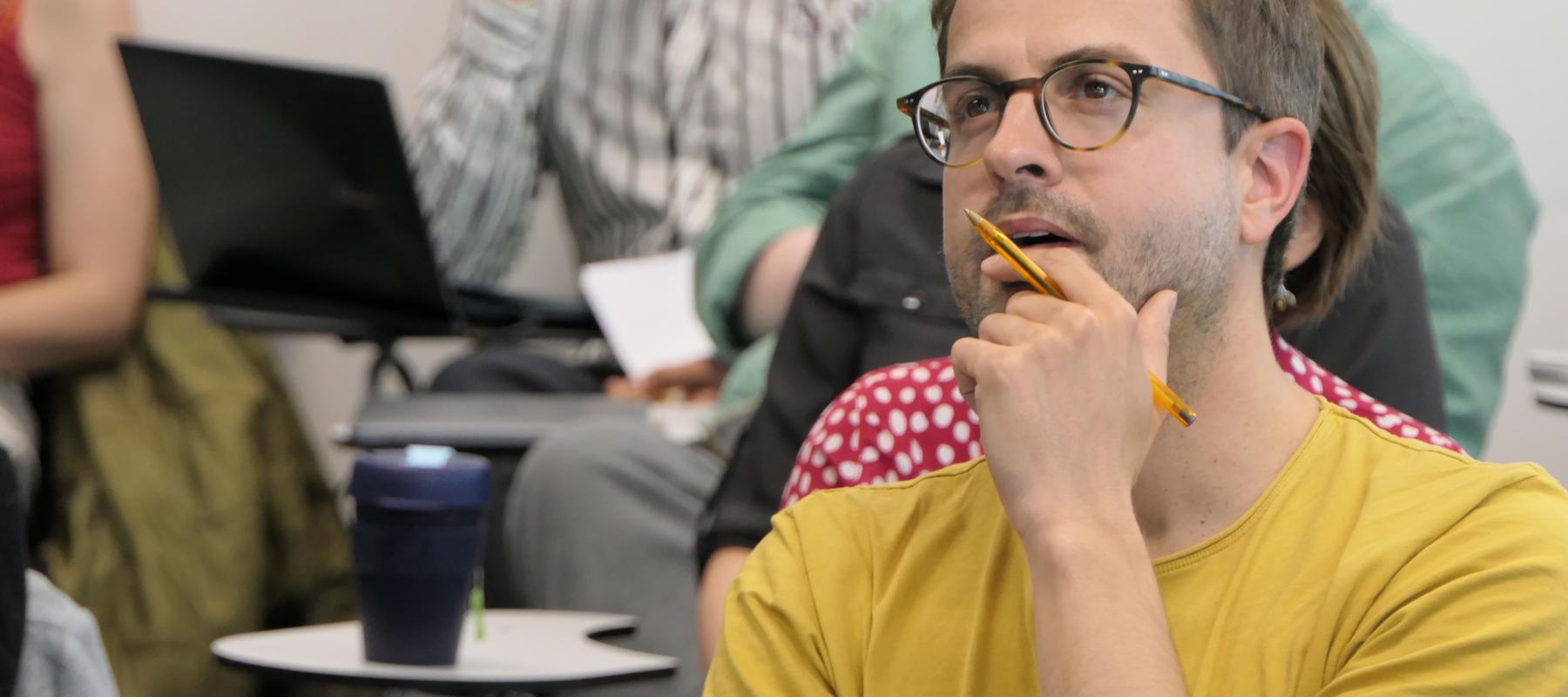Overview
The MJur aims to bring students into advanced intellectual engagement with some of the most difficult issues in law and legal theory, an engagement distinguished by rigour, depth and conceptual sophistication requiring immersion in law as an academic discipline as well as informed openness to neighbouring disciplines. The MJur raises students to the highest level of professionalism in analysis and argument, equipping them intellectually for legal practice or work as a legal academic at the highest level, as well as for a wide range of other intellectually demanding roles. The course offers a learning experience characterised by a demanding schedule of independent study, highly participative round-table seminars, and a complementary diet of close individual or small-group contact with tutors.
By studying the course, you will obtain a thorough knowledge and deep understanding of four new legal or legally-related subjects – these being subjects which, at undergraduate level were either not studied at all, or were only studied in a more elementary way. You will develop an understanding of neighbouring academic disciplines sufficient for a mature appreciation of the place of law in the world and mature and critical attitude towards law. A knowledge will also be acquired of the values and techniques of advanced legal scholarship and/or the advanced interdisciplinary study of law.
The MJur shares most of its course content with the BCL, and for the most part, BCL and MJur students study the same options in the same classes, thereby producing a diverse mix of students who can contribute a wide variety of different perspectives to seminar and tutorial discussion.


Course in brief
The Magister Juris, or MJur, is a counterpart to the BCL (the Bachelor of Civil Law, our long-standing and highly regarded masters course for students from a common law background), and offers much the same provision as the BCL, but for students from a civil law background. The programme gives students from non-common law backgrounds an opportunity to explore some of the distinctive methods, practises and doctrines of the common law. As a masters level degree, its academic standard is significantly higher than that required in a first law degree, such as a BA, LLB, or JD, and only those with outstanding first law degrees are admitted. Courses are not introductory, and students are expected to analyse complex material critically and to make their own contribution to the debate.
Structure
There are no compulsory courses on the MJur; instead, students choose from a combination of full and half-options, choosing either four full options, or three full options and two half-options, or two full options and four half-options. MJur students may choose full options from two lists: the list of options shared with the BCL (typically around 35 different options) and a list of undergraduate subjects (typically a dozen or so) which are made available to MJur students and from which they may pick one. In place of one full option, students may also choose to write a dissertation of 10,000 to 12,500 words on a topic of their choosing (subject to Faculty approval). All options are taught by a combination of lectures and/or seminars and tutorials, apart from the dissertation option, which involves one-to-one sessions with an assigned supervisor. Each student is allocated an academic advisor who will serve as a general source of advice on academic matters.
Seminars are normally led by a senior member of academic staff but are typically interactive in nature, and you will be expected to participate in the discussions arising from the material covered. Tutorials involve an intensive discussion between a tutor and (typically) two to four students, providing an opportunity for you to present your ideas and discuss your work with leading academics. Typically, seminars will introduce you to a particular area of study and familiarise you with general concepts and ideas which will then be investigated in greater depth in the tutorials. For most tutorials you will be expected to write an essay, which typically will be marked and returned to you at the next tutorial.
Outside of the seminars and tutorials, you will be expected to read extensively in order to acquire the necessary knowledge to engage with course material at an appropriate level.
Student experience
Induction
The induction programme is usually held in the two weeks preceding Michaelmas term and comprises Bodleian Law library and IT induction sessions, academic primer classes as well as social events.
Workspace
The Faculty of Law is located in the St Cross Building, where the majority of teaching takes place. The St Cross Building is also the home of the Bodleian Law Library, which has 40 networked computers, giving access to all the online resources within the Library and University. There is a Graduate Reading Room, a large seminar room, two IT rooms, and three small ‘discussion rooms’ for private study or group work.
Pastoral and Welfare Support
In addition to the pastoral support provided by college advisors, the Faculty seeks to support students by various means. Each programme has dedicated administrative support and the administrators in question will be able to help and advise students on a range of matters relating to their studies, or point them towards dedicated sources of support elsewhere in the University. Academic Supervisors and the Programme Director, Professor Dorota Leczykiewicz, can also serve as a source of support.
Apart from these more general roles, the Faculty also offers support in certain specific areas (for example, Disability Contacts and Harassment Advisors).
The MJur is no doubt the most intellectually and stimulating masters there is! Its distinct tutorial system, discussion-led classes, and accessible faculty members have allowed me to explore legal arguments beyond my expectations.
Thara, MJur 2018
I can tell you that choosing to study at Oxford was one of the best decisions of my life
Rifky, MJur 2016
Admissions

For information about all aspects of the admissions procedure, including entry requirements, please click on the link below. You will be required to supply supporting documents with your application, including references, written work and an official transcript, which will be used to assess your suitability for the course.
Partnering with an MBA
Have you considered partnering the BCL/MJur/MLF with an MBA? The Oxford 1+1 MBA is a unique two-year experience, allowing talented individuals to combine a Master's with the one-year Oxford MBA.
Why not an LLM?
- The BCL and MJur are the only taught graduate courses in the world which make use of tutorials as a central part of their teaching (as well as the seminars and lectures more generally used on LLM and other masters courses).
- The tutorial is an intensive discussion between a tutor and typically two to four students, providing an opportunity for students to present their ideas and discuss their work with leading academics.
- It is this level of access to some of the best known teachers and researchers across a wide range of legal subjects which perhaps more than anything distinguishes the BCL and MJur from their LLM counterparts, though the intellectual rigour of both courses, and the cosmopolitan mix of students are also important factors in the success and reputation of the two courses.


